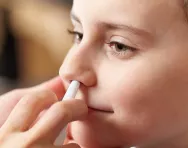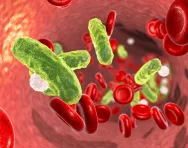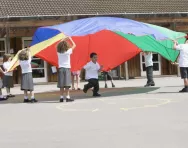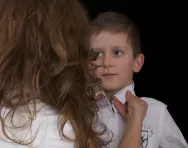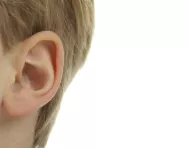Important update from TheSchoolRun
For the past 13 years, TheSchoolRun has been run by a small team of mums working from home, dedicated to providing quality educational resources to primary school parents. Unfortunately, rising supplier costs and falling revenue have made it impossible for us to continue operating, and we’ve had to make the difficult decision to close. The good news: We’ve arranged for another educational provider to take over many of our resources. These will be hosted on a new portal, where the content will be updated and expanded to support your child’s learning.
What this means for subscribers:
- Your subscription is still active, and for now, you can keep using the website as normal — just log in with your usual details to access all our articles and resources*.
- In a few months, all resources will move to the new portal. You’ll continue to have access there until your subscription ends. We’ll send you full details nearer the time.
- As a thank you for your support, we’ll also be sending you 16 primary school eBooks (worth £108.84) to download and keep.
A few changes to be aware of:
- The Learning Journey weekly email has ended, but your child’s plan will still be updated on your dashboard each Monday. Just log in to see the recommended worksheets.
- The 11+ weekly emails have now ended. We sent you all the remaining emails in the series at the end of March — please check your inbox (and spam folder) if you haven’t seen them. You can also follow the full programme here: 11+ Learning Journey.
If you have any questions, please contact us at [email protected]. Thank you for being part of our journey it’s been a privilege to support your family’s learning.
*If you need to reset your password, it will still work as usual. Please check your spam folder if the reset email doesn’t appear in your inbox.
The parents’ guide to childhood vaccinations
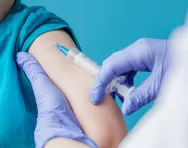
Children are prone to picking up every illness going. The combination of a developing immune system, less than scrupulous personal hygiene, and being in close proximity to other kids makes it likely that your child will have their fair share of coughs, colds and tummy bugs throughout their primary years.
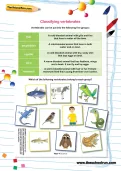

Download fantastic science resources today!
- Experiments And Science Fun pack
- Science Learning Programme for each school year
- All the instructions, questions and information you need
Some illnesses, however, are much more serious, and for that reason, every child in the UK is offered a comprehensive suite of vaccinations on the NHS.
Why is vaccination important?
First and foremost, it’s important that your child has their routine vaccinations to protect them from disease.
Illnesses such as whooping cough may not sound particularly scary, but they can actually be very dangerous.
‘The diseases that we vaccinate against can be very serious, and in some cases, life threatening,’ explains Helen Bedford, Professor of Child Health at UCL Great Ormond Street Institute of Child Health and spokesperson for the Royal College of Paediatrics and Child Health.
For example, mumps can cause meningitis and hearing loss, while measles can lead to convulsions, pneumonia, meningitis, and encephalitis (infection of the brain). Rubella (German measles), although usually a very mild disease, can be very serious if a woman catches it in the early stages of pregnancy as there is a high chance that the developing baby will be damaged and have heart, vision and brain problems.
The second reason to have your child vaccinated is that it protects other people in the community. This is known as herd immunity or community immunity.
‘If as many children as possible are vaccinated, it protects the community as a whole, as there’s so little disease around that catching it becomes very unlikely,’ Helen says.
‘This helps protect people who are unable to be vaccinated or vulnerable to disease, such as babies who are too young to have had their immunisations, elderly people and those who have compromised immune systems due to illness or treatment like chemotherapy.’
This is important as many of the diseases that we vaccinate against are highly infectious.
‘Measles is the most highly infectious preventable disease and spreads very quickly: one person can infect 18 others,’ Helen explains.
‘It’s spread by coughs and sneezes, and the virus can hang in the air for up to two hours, meaning a person can still catch it even without direct contact with the infectious person.’
Which vaccinations should your child have?
The childhood immunisation programme starts soon after birth and continues into your child’s teenage years.
8 weeks
6-in-1 vaccine: protects against diphtheria (a bacterial infection affecting the nose, throat and sometimes the skin), tetanus, whooping cough, polio, Hib (a bacterial infection that can cause meningitis and pneumonia) and hepatitis B.
Pneumococcal (PCV) vaccine: protects against pneumococcal infections, which can lead to pneumonia, meningitis and sepsis.
Rotavirus vaccine: protects against a common cause of sickness and diarrhoea in babies.
MenB vaccine: protects against the bacteria that are responsible for 90% of meningococcal infections in young children which can cause meningitis and sepsis.
12 weeks
6-in-1 vaccine: second dose.
Rotavirus vaccine: second dose.
16 weeks
6-in-1 vaccine: third dose.
PCV vaccine: second dose.
MenB vaccine: second dose.
1 year
Hib/MenC vaccine: a combined single vaccine that gives a fourth dose of Hib vaccine and a first dose of meningitis C.
Measles, mumps and rubella (MMR) vaccine: first dose.
Pneumococcal vaccine: third dose.
MenB vaccine: third dose.
2-9 years
Annual flu vaccine: this is offered to children aged two and three at their GP’s surgery or clinic, and, from the academic year starting September 2019, to children in Reception to Year 6 at school, in the form of a nasal spray.
3 years and four months
MMR vaccine: second dose.
4-in-1 preschool booster: a ‘top-up’ vaccine that boosts immunity against diphtheria, tetanus, whooping cough and polio.
12-13 years
HPV vaccine: two jabs given six months to two years apart to protect against the virus that causes cervical cancer. This was originally given only to girls, and is usually given at school. From the academic year 2019-2020, boys will be offered the HPV vaccine too, as it provides protection against infections that can cause some cancers that affect males.
14 years
3-in-1 teenage booster: a combined jab that boosts immunity to diphtheria, tetanus and polio. This is usually given at school.
MenACWY vaccine: protects against four common strains of meningococcal bacteria, which particularly affect students and young people. Again, most children will have this vaccine at school, but anyone up to the age of 25 is also eligible.
The chickenpox vaccine
The chickenpox vaccine is not currently offered on the NHS.
Although usually a mild illness in childhood, chickenpox can be serious in adulthood. If a vaccine were introduced and uptake was not very high, it would leave unvaccinated children more at risk of chickenpox in adulthood, when it is often more severe – and can pose risks in pregnancy.
‘The group that advises the government on immunisation is constantly reviewing this, and weighing up the pros and cons of introducing it to the childhood vaccination schedule, but there are no immediate plans to introduce it,’ says Helen.
Some parents, however, opt to have the chickenpox vaccine privately, at around £75 per dose.
Why so many jabs?
Some parents worry that having combined vaccines, or more than one jab at once, might overwhelm their child’s immune system, but this is not the case.
The strains of bacteria and viruses used in vaccines are weakened or inactive, meaning it’s almost unheard of for children to come down with the illness following their jabs.
In fact, according to the NHS, if a child were given 11 vaccines all at once, it would only use a thousandth of their immune system.
In addition, boosters, where your child has a second, third or fourth dose of a vaccine, are important to give them lasting immunity from disease.
‘The measles vaccine, for example, is about 90 to 95% effective, so some people will still get measles despite having the jab,’ explains Helen.
‘Having a second dose of the MMR increases protection so your child is less likely to get the diseases.’
What about single vaccines?
In the late 1990s and early 2000s, scare stories circulated surrounding a controversial study that reported a link between the MMR and autism. Around this time, many parents decided to pay for separate measles, mumps and rubella vaccinations at private clinics in the hope of reducing the risk of autism.
However, the study has now been entirely discredited, and the doctor behind the study has been struck off the medical register. Further extensive research has found no link between the MMR and autism.
‘We don’t recommend single vaccines, and there’s no reason to have them,’ says Helen.
‘It means children’s protection is delayed, means they have to have six injections instead of two and, as the single mumps vaccine is no longer available, they wouldn’t be protected against this disease at all.’
Are we in the grips of an epidemic?
Recently, stories of outbreaks of disease, particularly measles, have hit the headlines.
According to the NHS, since 2017 measles outbreaks have been reported in pockets of the UK, including London, Leeds, Birmingham, Manchester and Surrey.
There has also been a wave of cases across Europe.
However, Helen advises that while outbreaks of disease should be taken seriously, we are far from epidemic status.
‘It’s a reminder of the importance of having the MMR and all of the other routine childhood vaccinations, including boosters, but parents of children who have been immunised shouldn’t be unduly worried about outbreaks,’ she explains.
What to do if you’re worried about vaccines
‘Most parents have good confidence in vaccination, and nine out of 10 children will have all their routine vaccinations,’ says Helen.
It’s natural to have worries about vaccinating your child, but remember that vaccines are very safe, and any discomfort is minor and temporary.
‘If you have questions about vaccinations, talk to your GP or health visitor, or use the NHS website for the most up-to-date and reliable information,’ Helen advises.
The Vaccine Knowledge Project from the Oxford Vaccine Group is also a good place to find out more.
‘My advice is not to make a decision based on social media: talk to a healthcare professional instead,’ Helen adds.
Sometimes, parents worry about reactions if their child has allergies – particularly to egg, which is an ingredient in the nasal flu vaccine.
However, the flu vaccine is generally safe for children with egg allergies, unless they have a severe anaphylactic reaction to egg that has required treatment in intensive care. These children should be referred to a hospital specialist for immunisation.
Another worry for some parents and children concerns them having vaccinations at school.
The flu nasal spray, HPV vaccine, 3-in-1 teenage booster and MenACWY are usually given at school. If you would rather you were with your child for their vaccinations, for example if they’re liable to be very upset or faint, you can ask to have them done at your GP surgery or health centre instead.
Vaccines and school entry
In May 2019, a group of Italian researchers advised that UK schools should make it compulsory for children to be vaccinated before starting school to avoid the spread of disease.
This follows measures in France and Italy, where it’s now compulsory for children to be vaccinated against measles before starting school.
However, it currently seems unlikely that this would become law in the UK.
‘The danger is that parents would opt out of the school system if they felt strongly about vaccinations,’ Helen says. ‘There’s a lot that we can do before we even think about making vaccines mandatory, from sending more frequent reminders and offering clinics at family friendly times, to having health professionals on hand to talk to.’
